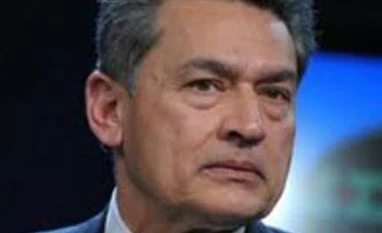The US Court of Appeals in New York said Tuesday that Doug Whitman, 58, founder of Whitman Capital LLC, will be temporarily freed before he finishes his two-year sentence while under the supervision of a facility in Sacramento. Whitman had asked to be released because, he says, his conduct may not be illegal if the US Supreme Court rules in another case in a manner that's favorable to him.
In addition to Whitman, at least four others convicted of insider trading, including former Goldman Sachs Group Inc director Rajat Gupta, are also seeking review of their cases after the Supreme Court agreed to hear the appeal of the California insider-trading case.
Whitman was convicted at a 2012 trial in New York of trading on illicit tips about Polycom Inc, Google Inc and Marvell Technology Group Ltd. His appeal was unsuccessful. He was scheduled to be released on May 29.
The Supreme Court agreed last month to hear an appeal from California of a man convicted for trading on information provided by a relative, who didn't get anything in return. It was significant because the high court had previously refused to review the December 2014 ruling by the federal appeals court in New York that set the bar higher, saying a person passing inside knowledge had to at least potentially get some benefit of value, such as money. The eventual ruling by the Supreme Court may clarify what sort of benefit the tipper must receive. Whitman has argued the high court's decision to hear that case puts his conviction in doubt, saying he didn't know what, if anything, his inside sources received for their tips. His lawyers argued Tuesday to the appeals court that his trial judge improperly instructed jurors that receiving the benefit of mere friendship was enough to find Whitman guilty, instead of something concrete like money, which is now required in the wake of the court's 2014 decision. The fund manager was found guilty of making $935,000 on trades based on tips from former Intel Corp executive Roomy Khan, his neighbor. His conviction was upheld in February 2014.
While the appeals court in Manhattan didn't issue any explanation for granting Whitman's request Tuesday, a judge on the panel that heard arguments earlier in the day noted that Whitman's challenge came months before the court made it harder for the government to bring insider-trading cases.
Barrington Parker, who sat on the panel which issued the 2014 ruling, told a government lawyer on Tuesday that to oppose Whitman's release under the new circumstances sounded "sadistic" to him.
Dennis Riordan, a lawyer for Whitman, said it's extremely rare to win a post-appeal challenge of a conviction, or even to win a defendant's release before the appeal is decided.
"We're delighted with today's ruling and we think that the order releasing him pending his appeal bodes very well for the future outcome of the merits of the appeal itself," Riordan said in a phone interview.
Jim Margolin, a spokesman for US Attorney Preet Bharara in New York, declined to comment on Whitman's release.
Bharara's seven-year crackdown on insider trading led to almost 80 convictions. Another 14 convictions were reversed following the 2014 ruling by the federal appeals court in New York.
You’ve reached your limit of 5 free articles this month.
Subscribe now for unlimited access.
Already subscribed? Log in
Subscribe to read the full story →

Smart Quarterly
₹900
3 Months
₹300/Month
Smart Essential
₹2,700
1 Year
₹225/Month
Super Saver
₹3,900
2 Years
₹162/Month
Renews automatically, cancel anytime
Here’s what’s included in our digital subscription plans
Access to Exclusive Premium Stories
Over 30 subscriber-only stories daily, handpicked by our editors


Complimentary Access to The New York Times
News, Games, Cooking, Audio, Wirecutter & The Athletic
Business Standard Epaper
Digital replica of our daily newspaper — with options to read, save, and share


Curated Newsletters
Insights on markets, finance, politics, tech, and more delivered to your inbox
Market Analysis & Investment Insights
In-depth market analysis & insights with access to The Smart Investor


Archives
Repository of articles and publications dating back to 1997
Ad-free Reading
Uninterrupted reading experience with no advertisements


Seamless Access Across All Devices
Access Business Standard across devices — mobile, tablet, or PC, via web or app



)
